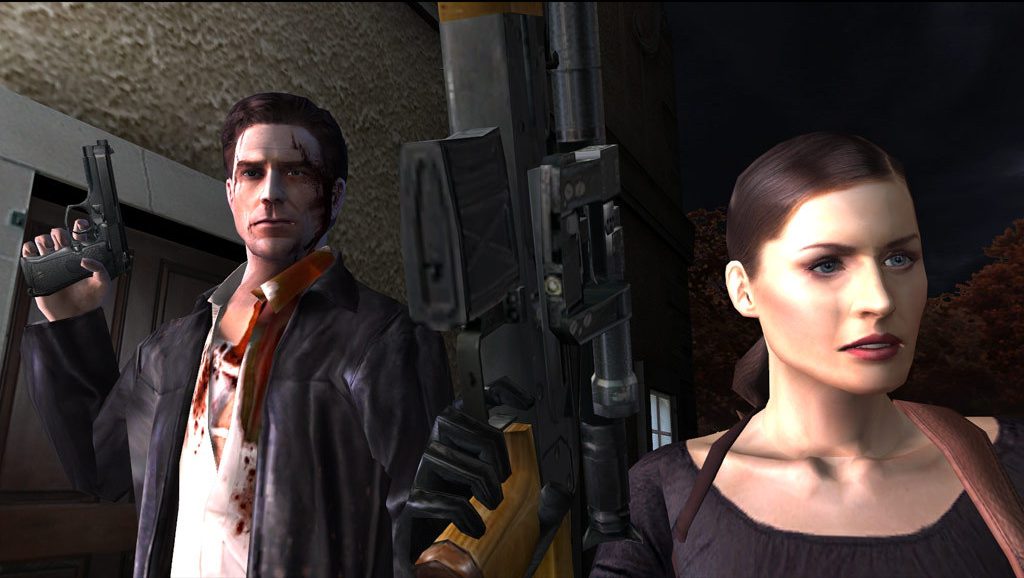Deserved or not, shooters have always had a stigma attached to them. Some of the earliest first-person shooters were decried for being overly violent and being a bad influence on kids, while others have been criticized for being mindless in nature as players are encouraged to just shoot at anything that moves on their screen. One developer that has always tried to push the genre to its limits is Finnish studio Remedy Entertainment. From implementing mature storytelling to adding revolutionary new gameplay systems, the studio has never been one to adhere to the status quo, especially given how Control is the team’s best title.
Despite almost exclusively making third-person shooters since Max Payne released in 2001, Remedy’s first title was actually a racing game. Called Death Rally, the 1996 MS-DOS release looks like your standard top-down racing game at first. However, those that play it will know that it showcases the developer’s attitude that would shine through in all of its games in that it puts a significant twist on the genre. While winning races is still the goal, all of the cars are equipped with weapons and destroying opponents and fulfilling goals can earn the player extra cash as they make their way through the game. Money could be used for upgrades, but it could also be used to pay off a mechanic in order to tamper with the vehicles of high-ranking foes. Despite working within familiar confines of a genre, Remedy was able to create something new that earned them critical and commercial success.
ALSO: Control campaign takes roughly 10 to 15 hours to beat, two expansions planned
It took five years for its next game to come out, but there is no denying that Max Payne was worth the wait. The third-person shooter was heavily inspired by several movies such as John Woo action flicks and notably The Matrix by the Wachowskis. Coming out just two years after the latter released in theaters, this was one of the first games to ever implement the concept of “bullet time.” The effect worked perfectly in the shooter as the titular hero can temporarily slow down time and take out groups of enemies in an instant. But it wasn’t just a shooter as it contained a storyline people actually cared about; a rarity for the genre. This combination helped a pretty standard shooter with linear level design sell millions of copies and was such a success that a film — albeit a poorly received one — was made in 2008 starring Mark Wahlberg and Mila Kunis.
Remedy Entertainment is always pushing itself to do better

Remedy returned just two years later with Max Payne 2: The Fall of Max Payne, and the sequel showed that it had learned a lot from the first game. It also features a much better story than the first, which was largely fine but fell into many neo-noir tropes. Like the original, it mostly revolves around Payne trying to move on from the death of his family. His character is further fleshed out as he deals with lucid nightmares and continues to down painkillers to mask the physical hardship he undergoes throughout it. Overall, it’s a much better game than the original in nearly every facet.
The Finnish studio went back to the drawing board after Max Payne 2, and decided to go in a new direction. This led to the development of the Xbox 360 psychological thriller Alan Wake. In a vast departure from the high-speed gunfights of their previous game, Alan Wake had players methodically battling enemies that had been consumed by darkness. The only way players could do any damage to them was the first expose them to light, be it from the environment or the player’s flashlight and other light-based weaponry like flares and flashbangs. It was a novel concept but it was outmatched by its incredible story.
Alan Wake‘s tale is told in an unconventional way, with a narrator reading a finely tuned script with the cadence and wordplay of a fictional novel. This presentation helped put its characters at the forefront, despite it being a third-person shooter; a bold, unique concept that has aged incredibly well. The 2010 release also blended the medium with a tie-in live-action series called Bright Falls that served as a prequel to it. Remedy’s experimentation in both gameplay and marketing once again paid off as it sold over 4.5 million copies as of March 2015, which has undoubtedly grown since.
The developer went straight back to work on a follow-up and returned just two years later with Alan Wake’s American Nightmare, a much shorter spin-off that was only available via download. Despite continuing the light-based combat found in the original, American Nightmare takes inspiration from the type of pulp fiction that was popular in the 1930s. This, alongside a wider array of weaponry, gave the standalone title a totally unique feel to it and differentiated it from the planned, yet ultimately scrapped, sequel that Remedy wanted to make. American Nightmare came at a time when digital standalone titles were rare, showing the studio’s penchant for trying to push forward.
18 years strong and Remedy Entertainment is still innovating

Remedy Entertainment’s next game was its most ambitious to date as Quantum Break blended television and gaming, and featured gameplay that was based around time manipulation. This can be used in an offensive and defensive maneuvers ranging from stopping time to freeze enemies and creating a shield that deflects bullets. Unlike Max Payne, the player isn’t the only one with special abilities as some enemies also have specially-designed suits that allow them to attack in a manner that is just as dangerous. The game received a surprisingly mixed reception as both its gameplay and use of a full-on live-action television series to tell its story left players divided. Regardless of if players loved it or loathed it, there is no denying that Remedy went in a bold direction and pushed the medium in unique ways.
Its latest game, Control, is out later this week and once again has a unique twist on the shooter genre. This time around, players have access to several supernatural abilities ranging from telekinesis to mind control. It also foregoes a linear format as players will have to explore its map and take use of their unique abilities they gain over time to unlock new locations. Early reviews have been positive and it looks to be a less divisive offering than the team’s last outing.
No matter what the future might hold for Remedy Entertainment, we know that the Finnish studio won’t release anything that could be construed as generic. It has been creating truly unique shooters for the past 18 years and will continue to innovate in a genre that they have already left a considerable mark upon. Control is the next step in that innovative path, as it once again proves that shooters have more to offer players than they are typically given credit for.







